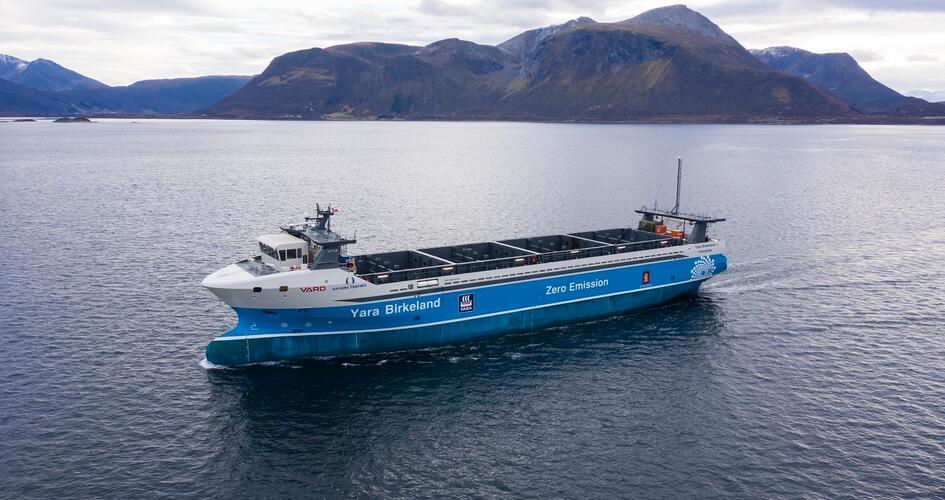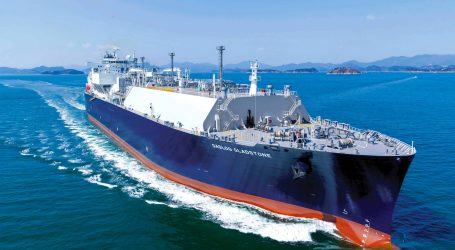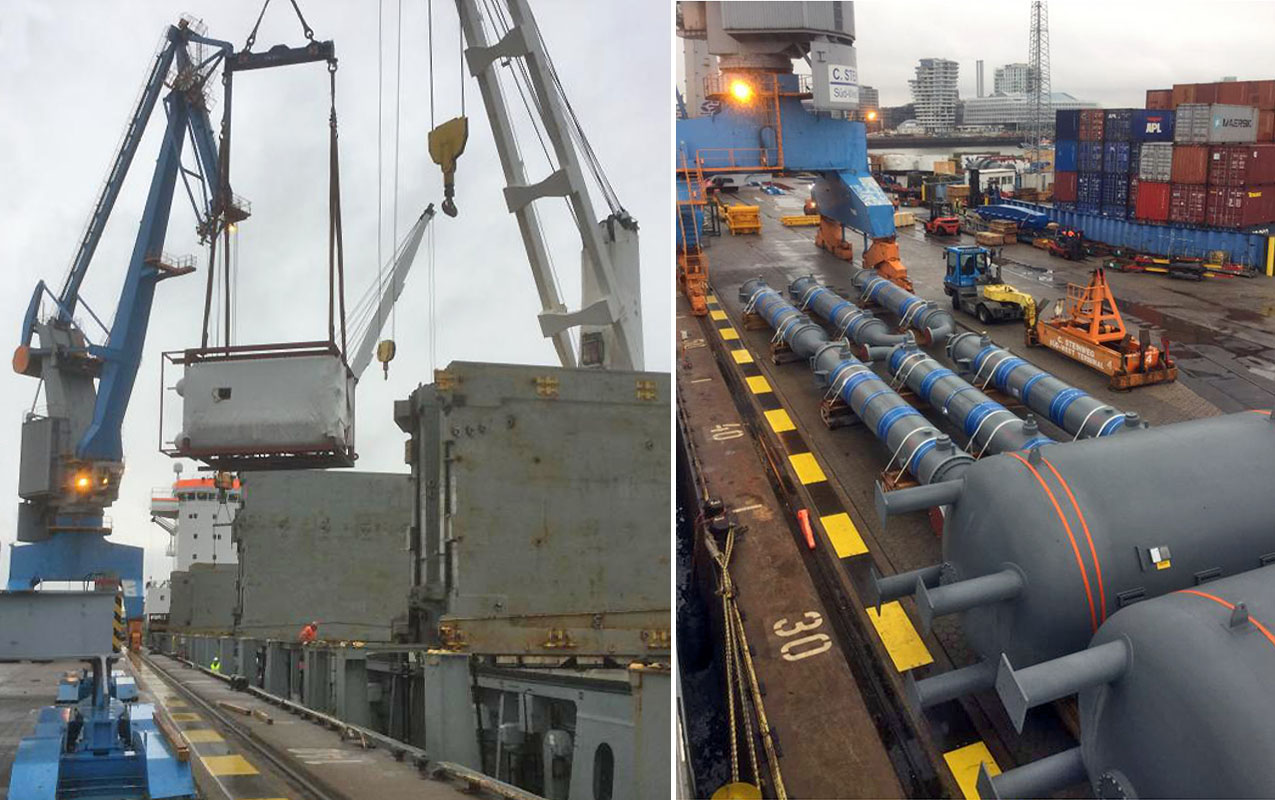If nothing thwarts the plans this time, the emission-free and unmanned container ship Yara Birkeland will set sail later this year. It will transport the first container from Herøya to Brevik in Norway.
The vessel Yara Birkeland was built in cooperation with Kongsberg Maritime at the Norwegian shipyard Vard for shipowner Yara International. The fully electric vessel was originally scheduled to set sail on its first voyage as early as 2020, but these plans were thwarted by a coronavirus pandemic.
The ship’s first voyage, with no crew on board, will be monitored from three control centres ashore. This is a change from earlier plans, which had assumed that the ship would be manned for the first two years of operation.
Yara International, the ship’s owner, first revealed the plan to build a battery-powered autonomous vessel in 2017, a year after Norway opened the world’s first designated test area for such vessels.
The project also required the development of regulations together with Norwegian authorities to allow the autonomous vessel to navigate the country’s waterways.
It is not the first autonomous vessel – an autonomous ferry launched in Finland in 2018 (Falco, a double-sided car ferry from state-owned operator FinFerries) – but it is the first fully electric container ship, its developers say.
Yara Birkeland is 80 metres long, 15 metres wide and can accommodate 120 standard 20-foot containers (TEUs). The vessel will operate within a limited sailing area, up to 12 nautical miles from the coast, between three ports in southern Norway. It will cover distances of 7 Mm between Herøya and Brevik and 30 Mm between Herøya and Larvik.
Initially, loading and unloading of the vessel will require human involvement, but in the longer term, all loading, unloading and berthing operations will be performed using technology. This will involve the development of autonomous cranes and straddle carriers – vehicles that place containers on ships.
Yara Birkeland will be loaded at the quay and then visit ports along the coast on a circular journey. The ship is expected to replace 40,000 truck journeys a year.
Challenges in commercial shipping
Rudy Negenborn, a professor at the Technical University of Delft, the Netherlands, on the US news channel CNN, said that fully autonomous ships such as the Yara Birkeland are the future. However, he adds that there are many challenges that need to be overcome before autonomous ships can be used for commercial, long-distance sea travel.
According to him, navigating large ports (as opposed to the relatively quiet inland ports that Yara Birkeland will sail to) could be a major hurdle.
At some point, these ships will have to start interacting with each other so they can exchange information and create paths that don’t interfere with each other, he says on CNN.
Negenborn adds that without a crew on board to perform maintenance checks, autonomous ships will need built-in self-diagnostic systems with the ability to detect and fix problems or call for human assistance.
Beyond the technical issues, there are also legal implications when it comes to inter-country travel.
Yara Birkeland operates along the Norwegian coast, but if it sailed further afield it would encounter other regions with perhaps different rules and regulations to comply with, says Negenborn. – Who is responsible if something goes wrong?
rel. PortalMorski.pl




